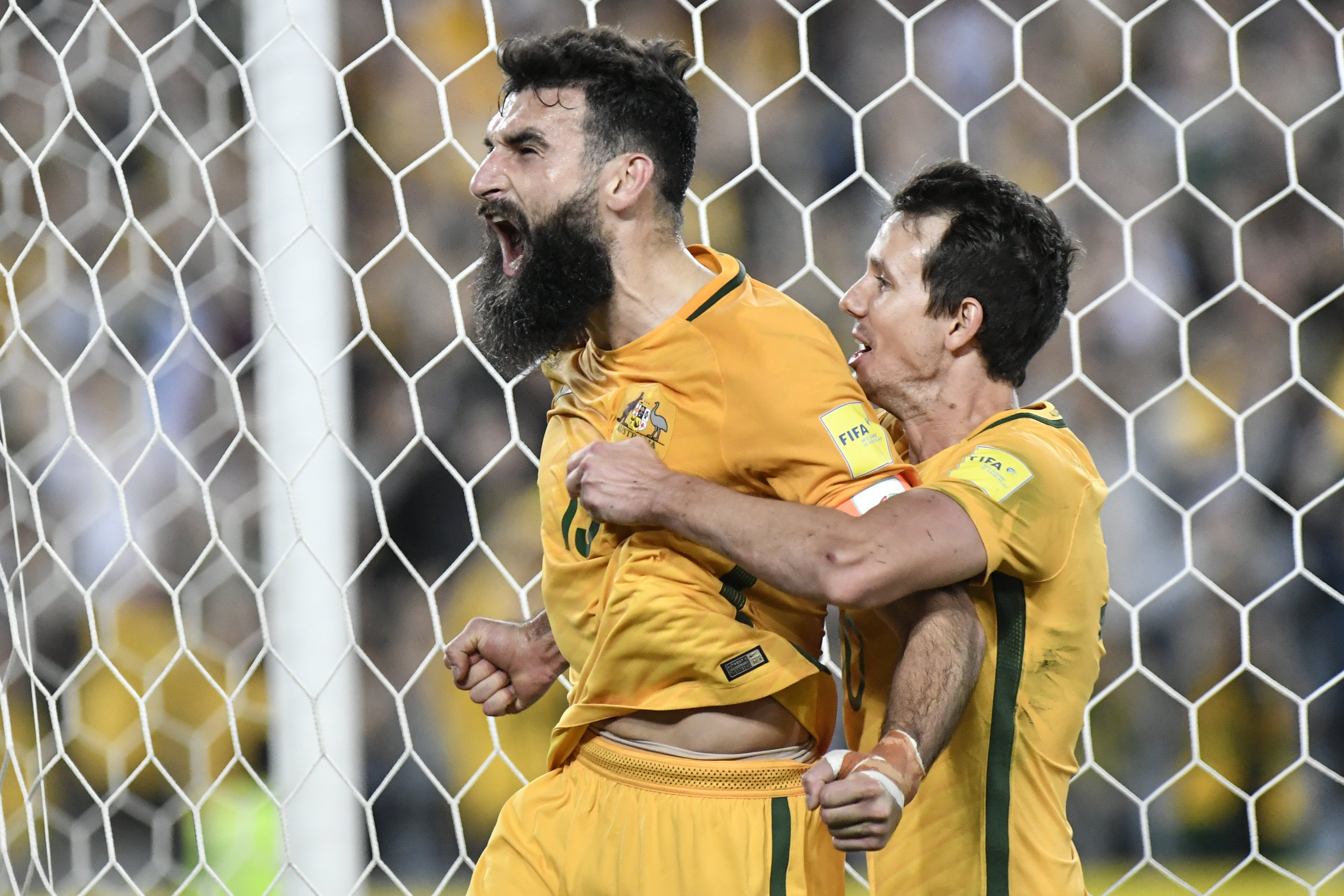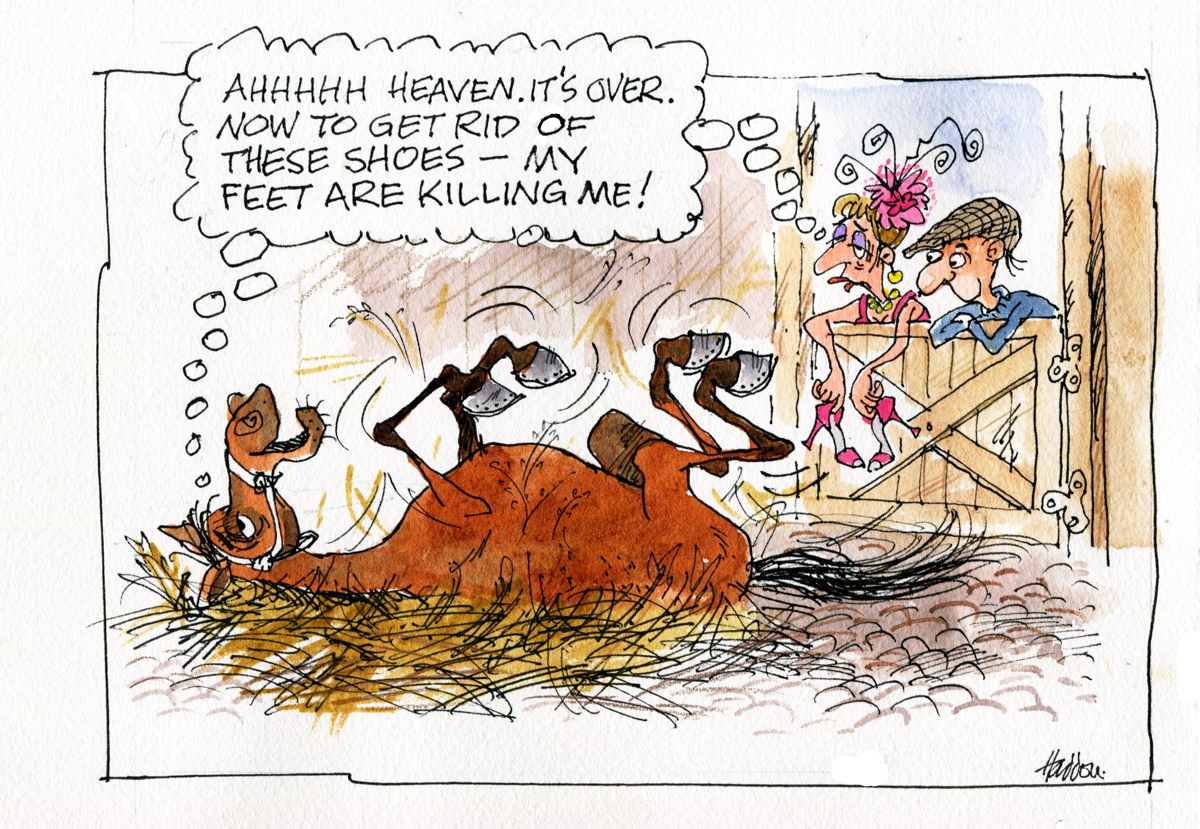HE’S THE inspiration of a nation, the captain who led from the front as Australian soccer made it to the World Cup for the fourth time in a row – a colossal feat, says Chief Writer RON REED:
WITH HIS bushy black beard, Mile Jedinak could pass for Ned Kelly. The facial foliage is now as famous as the ancient outlaw’s was when he died almost to the day 137 years ago. The Socceroos captain has become, surely, close to the most recognisable of all Australia’s international sports stars thanks to his attention-grabbing three-goal performance in the death-or-glory – an expression old Ned might have recognised – return showdown with Honduras in Sydney, which propelled Australia to the World Cup in Russia next year.

Leadership is always crucial when everything goes on the line in elite sport, something that is certain to become apparent again very soon on Australian fields of combat, with two relatively young and inexperienced captains in charge of the cricket teams that are about to do battle for The Ashes. The outcome of that is no less important to most sports fans than the soccer team’s ability to put Australia on the world’s biggest sporting map. Steve Smith will be under plenty of pressure but if he is searching for inspiration then he need look no further than Jedinak, who employs an old and very effective methodology – he doesn’t say much, well not in public anyway, but makes his actions speak at full volume.
His three goals against Honduras were all due to free kicks – two of them penalties – in which he was not directly involved, but he accepted, in fact demanded, the responsibility for making certain they were not squandered and like the cool professional that he is he got the job done every time. Yes, there might have been an element of luck involved in the deflection of the free kick off a defender and in the accidental Honduran handball that led to the second goal, but as they say, the harder you work the luckier you get and Jedinak works very hard indeed.
He covers a lot of ground in the defence and midfield with an authoritative presence and iron discipline that means he makes very few mistakes. At 33, with a successful career at Crystal Palace and now Aston Villa still progressing strongly and about 70 games with the Socceroos on his CV, experience is another of his crucial assets. So is his dedication to the national cause. Of Croatian heritage, he was born and raised in Sydney, where he learned to play the game, and was never tempted to return to his roots, believing Australia had been very good for him and he would return the favour if he possibly could. This was one area of Australian public life where dual citizenship was never going to be an issue.
It was coach Ange Postecoglou who recognised all this, and in one of the first big decisions of his own turbulent reign he made Jedinak captain for the last World Cup in Brazil 2014 and for the successful Asian Cup campaign that followed. It was a gamble to even play him in the first leg against Honduras given that a persistent groin injury had limited Jedinak to only three cameo appearances for Aston Villa and none for the Socceroos for almost six months, but the coach knew his man. Jedinak was arguably best afield and while some wondered whether he would be able to back up again so quickly given his lack of match-play, he just got better and better and ended up the matchwinner – and a national hero. His profile hasn’t been as prominent as you would expect of the captain of a major national sports team – former Prime Minister Tony Abbott once infamously referred to him as Mike – but that has changed now.
Asked to respond on television a few minutes after the final whistle – with celebrations breaking out all around him – he could scarcely have been less jubilant. Without a smile, he uttered maybe 40 words in about 10 seconds and was on his way. Mission accomplished, no need to elaborate, let alone big note. With that beard, maybe Ned Kelly is not who he most resembles, but the old Carlton footy champ Bruce Doull, who was also a man of famously few words.
There are, of course, not one but two leaders of almost any sports team, and besides the captain the other one is the coach. An articulate and eloquent character most of the time, Postecoglou has also chosen to be tight-lipped on at least one vitally important matter – will he or will he not be still at the helm when the World Cup comes around? The emotion that was written all over his chubby, well-worn (and often half-bearded) face in the dying stages – with victory assured – and in the immediate aftermath made it impossible to believe there has ever been a query about his commitment. It wasn’t so much jubilation – well, naturally there was some of that – but it looked more like utter relief. In his own TV interview, he said the entire campaign – which encompassed a record 22 games in 884 days with about 250,000km of travel to 22 countries – was the hardest thing he had ever done. Who knows what, for him, the ramifications of failure might have been. Not only for him, but for the game in general in Australia, where an array of political problems will have at least been put on the back burner to some extent. Getting to the big dance for the fourth time in a row really is a colossal achievement for a country in which soccer is not even the first or second biggest deal and the operative word should be pride.
That goes for Postecoglou in spades, of course, but he still couldn’t bring himself to declare his hand, saying he just wanted to enjoy the moment with his troops and his family, hinting again that there was some deep-seated chagrin burning away in his guts. If so, that’s a shame – but it would be even more unfortunate if he were to walk away now. Frankly, with the job still only partly done, it would amount to a dereliction of duty. He’s better than that – much better. The score that is now on the board proves it.
RON REED has spent more than 50 years as a sportswriter or sports editor, mainly at The Herald and Herald Sun. He has covered just about every sport at local, national and international level, including multiple assignments at the Olympic and Commonwealth games, cricket tours, the Tour de France, America’s Cup yachting, tennis and golf majors and world title fights.



Discussion about this post